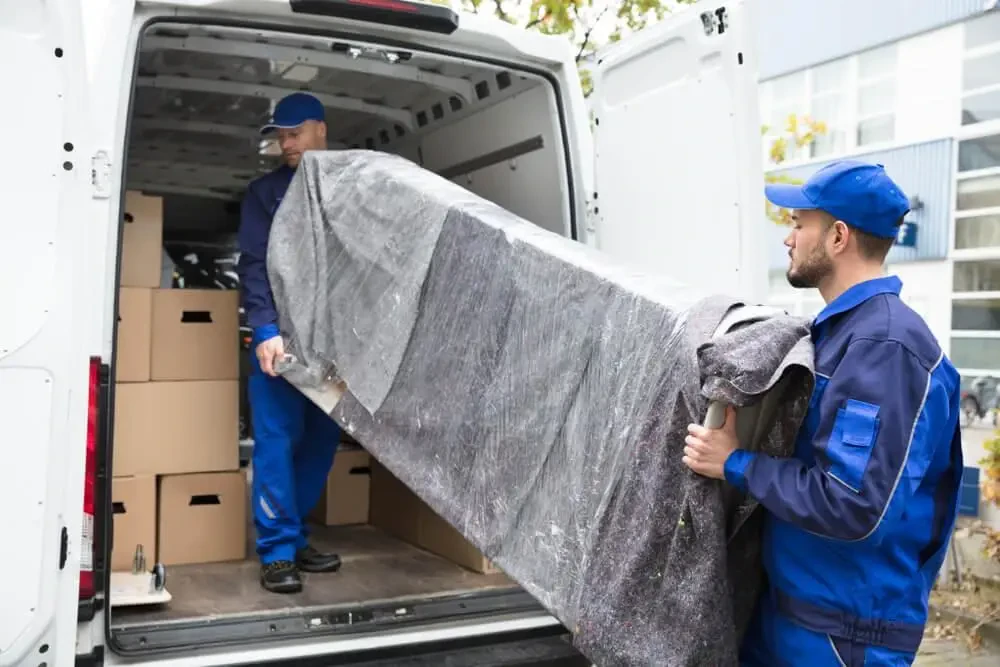Published by Joe Webster
Last updated Jan, 21 2026

The cheapest way for a one-way move involves several cost-effective strategies. Opting for a DIY move using your own vehicle ranks as the most affordable option, allowing full control over the moving process. Renting a truck offers flexibility for larger loads, while a hybrid move combines DIY efforts with professional moving services for specific tasks. Moving containers provide a balance of convenience and cost, and freight trailers offer a unique solution for transporting large quantities. Shipping smaller items or utilizing shared load moving services can also significantly reduce costs, making them ideal for budget-conscious movers.
One-way moves, characterized by relocating from one point to another without returning, require efficient planning and execution. This type of move is particularly relevant for long-distance relocations where returning is not practical. To undertake a one-way move as cheaply as possible, it's essential to explore various moving options that align with your budget and moving needs. From DIY moves using personal vehicles to renting moving trucks, and from utilizing moving containers to considering freight trailers, each option presents unique advantages in terms of cost and convenience. Additionally, shipping items or opting for shared load moving can offer further savings, making your one-way move both economical and efficient.
Assessing Your Moving Needs
Identifying your moving needs is essential before moving. A detailed inventory of your belongings and comprehension of your time limits are needed. Correctly assessing what must be moved will help you transport big furniture, fragile goods, or many boxes. A precise timeline helps you organise packing, loading, and transportation time.

Moving distance, accessibility at both locations and interim storage needs must also be considered. For instance, cross-country moves require different preparation and resources than local moves. Narrow entrances or no lifts may require special equipment or labour. Understanding these components early on prevents last-minute surprises and streamlines the process, ensuring you're ready for your one-way relocation before departure.
Budgeting for Your One-Way Move
Financial constraints must be considered while planning a one-way move. Budgeting is about making informed decisions to cut expenditures, not just adding up predicted expenses. Different moving services charge differently for packing, insurance, and hauling. Understanding these expenditures is essential to budgeting.
Moving may also incur unforeseen fees. These can include travel meals, property damage, or extra service charges. An emergency reserve for these unexpected events can help you stay on budget. Your one-way move might be easier with proper budgeting and financial planning.
Considering Different Moving Options
A one-way move often requires a truck rental. This option allows peo ple to plan and organise the move independently. Truck rentals come in various sizes to accommodate clients' moving needs. Consider that driving a large truck may be challenging for some before picking this option.
Professional movers are also popular. They gently pack, move, and unload your belongings. Moving companies provide property insurance. The ease and comfort of mind they provide usually outweigh the higher cost, especially for first-time movers or major moves.

Frequently Asked Questions
Assessing your moving needs involves consideration of several factors, such as the quantity and type of items to be moved, the distance of the move, any special handling needs for fragile items, etc. It's also important to consider timing and whether you'll require storage solutions.
A budget for a one-way move should include the cost of hiring the moving truck or movers, packaging materials, fuel costs, insurance, and additional services like packing or storage. It's also wise to add a contingency for unexpected expenses.
There are several moving options available. You can opt for a DIY move, where you pack and move everything yourself. Alternatively, you can hire professional movers to handle everything or just the heavy lifting. One-way truck rentals are another possible option for long-distance moves.
Yes, hiring professional movers can offer several benefits. For instance, it can save you time and effort, reduce the risk of injury from heavy lifting, and help ensure your items are packed and transported safely. Additionally, most moving companies offer insurance coverage for your belongings during the move.
The best moving option for you depends on your specific needs and circumstances. Consider factors such as the size and complexity of your move, your budget, your physical ability to handle the move, and your comfort level with packing and moving your belongings.


